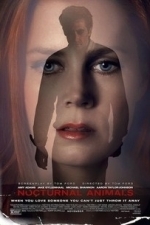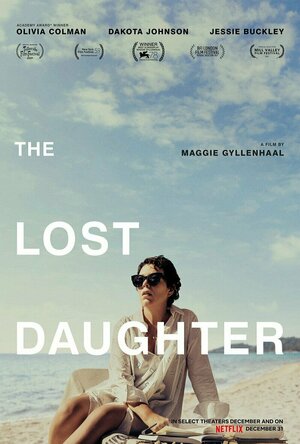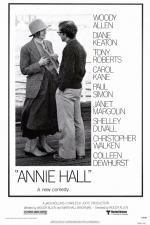Bob Mann (459 KP) rated Nocturnal Animals (2016) in Movies
Sep 29, 2021
In the midst of this rudderless time a manuscript from her ex-husband, struggling writer Edward Sheffield (Jake Gyllenhaal), turns up out of the blue. As we see in flashback, Edward is a man let down on multiple levels by Susan in the past. His novel – “Nocturnal Animals”, dedicated to Susan – is a primal scream of twenty years worth of hurt, pain, regret and vengeance; a railing against a loss of love; a railing against a loss of life.
As Susan painfully turns the pages we live the book as a ‘film within a film’ – with characters casually modelled on Edward, Susan and Susan’s daughter, actually played by Gyllenhaal, Amy-Adams-lookalike Isla Fisher (“Grimsby”) and Ellie Bamber (“Pride and Prejudice and Zombies”) respectively. The insomniac Susan is seriously moved. She feels likes someone who’s fallen asleep on the train of life and doesn’t recognise any of the stations when she wakes up. How will Susan’s regrets translate into action? Should she take up Edwards offer to meet up for dinner?
This Tom Ford film – only his second after the wildly successful “A Single Man” in 2009 – is a challenging film to watch. The opening titles of naked overweight woman ‘twerkers’ is challenging enough (#wobble). After this shocking opening (that morphs into an art gallery installation) the LA scenes have a gloriously Hitchcockian/noir feel to them, being gorgeously filmed by cinematographer Seamus McGarvey (“The Accountant”, “The Avengers”) – an Oscar nomination I would suggest should be in the offing.
And then comes the start of the “book” segment: one of the most uncomfortably tense scenes I’ve seen this year. A Texan family horror film featuring a lonely highway and a trio of “deplorables” (to quote an unfortunate put-down by Hilary Clinton). As stark contrast to the sharp lines and glamour of LA, these scenes are reminiscent of “No Country for Old Men” with a searingly unpleasant performance from Aaron Taylor-Johnson (“Kick-Ass”) and an equally queasy turn by local law enforcer Bobby Andes (Michael Shannon, Zod in “Batman v Superman: Dawn of Justice”). Either or both of these gentlemen could be contenders for a Supporting Actor nomination. The tension is superbly notched up by a mesmerising cello/violin score by Polish composer Abel Korzeniowski.
Amy Adams is fantastic in the leading role (what with “Arrival” this month, this is quite a month for the actress) as is Jake Gyllenhaal, channelling so much emotion, angst and guilt at his own impotence. After “Nightcrawler” Gyllenhaal is building up a formidable reputation that must translate into an Oscar some time soon: possibly this is it. Some excellent cameos from Laura Linney (as Susan’s sad-eyed mother) and Michael Sheen (in a superb purple jacket) rounds off an excellent ensemble cast.
The concept of a “film within a film” is not new. The most memorable example (I realise with a shock – #midlifecrisis) was “The French Lieutenant’s Woman” with a young but striking Meryl Streep 35 years ago. Here the LA sequence, the book and the flashback scenes are beautifully merged into a seamless whole where you never seem to get lost or disorientated.
If there is a criticism to be made, the second half of the ‘book’ is not as satisfying as the first with some rather clunky plot points that fall a little too easily.
However, this is a nuanced film where every step and every scene feels sculpted and filled with meaning. It is a film that deserves repeat viewings, since it raises questions and thoughts that survive long after the lights have come up. Tom Ford’s output may be of a sparsity of Kubrick proportions, but like Kubrick his output is certainly worth waiting for.
Recommended, but go mentally prepared: this was a UK 15 certificate, but it felt like it should be more of a UK 18.
BankofMarquis (1832 KP) rated The Lost Daughter (2021) in Movies
Feb 17, 2022
Such is the case with THE LOST DAUGHTER, Maggie Gyllenhaal’s film Directing debut (she is also Oscar nominated for Adapted Screenplay) that follows the emotional journey of a College Professor (the great Olivia Colman) on Holiday in Greece who is forced to confront her past decisions amidst the emotional toil that these decisions have created.
Normally, these introspective, “Art House” films are not my cup of tea and during the first half of this film, I did find myself wandering a bit. This is because Colman’s character of Leda arrives on-screen at the onset of this film heavy with emotional (almost crippling so) baggage and it is almost too much to bear…which is the point. The movie, then, peels the layers back slowly to reveal why.
It is, yet again, a tour-de-force performance by Colman - who just might win ANOTHER Oscar for this work - it is that strong without being show-offey (if that is a word). Colman becomes Leda and delves strongly into the introspection, guilt, hurt and confusion that this character has. She allows the character to breathe (sometimes in gulps of crying). It is the type of character (and performance) that film today rarely allows time for on screen.
Credit for this has to go to Directer/ScreenWriter Maggie Gyllenhaal who adapted Elana Ferrante’s novel into a quiet, retrospective film. The adaptation works well for someone who has no prior knowledge of the novel and the direction and camerawork of this film is unwavering in it’s look into a character that is flawed and at times unlikeable. It is a strong Directorial and Screenwriting debut for Gyllenhaal.
Jessie Buckley is also Oscar nominated (for Best Supporting Actress) for her role as the younger Leda - a character who’s actions strongly affect the older Leda. While this character is not as nuanced as Colman’s version of Leda, she still is strong and Buckley’s performance is just as confident, self-centered, and fierce showing the roots of the person that would become Colman’s character. This is only the 3rd time in Oscars history that 2 actresses have been nominated for Academy Awards for playing younger and older versions of the same person (Kate Winslet/Gloria Stewart playing Rose in TITANIC and Kate Winslet/Judi Dench playing Iris in IRIS).
Ed Harris shows up as the proprietor of the space that Leda is renting in Greece and is a welcome presence (as always). The surprises to me in this film were the performances of Dakota Johnson and Jack Farthing. Johnson is proving that she is more than just the “50 SHADES” girl and spars with Colman quite well, more than holding her own. Farthing, who played the cold and distant Prince Charles in SPENCER is the husband of the younger Leda and he is the polar opposite of Prince Charles - open, loving and emotional. It is fun to see 2 clearly differing performances by the same actor. Farthing is someone to keep an eye on.
As is Gyllenhaal, Colman and THE LOST DAUGHTER. It is a strong piece of film-making and not an easy watch. But, if you can click into the emotion of this flawed character - and stick with this film through the ugliness and mistakes that Leda selfishly makes, you will be rewarded with a character study, the likes of which is rare in film today.
Letter Grade: A-
8 stars (out of 10) and you can take that to the Bank(ofMarquis)
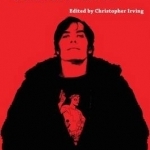
Michael Allred: Conversations
Book
Michael Allred stands out for his blend of spiritual and philosophical approaches with an art style...
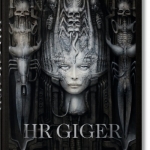
H R GIGER : Limited Collector’s Edition of 1,000 numbered copies,
Book
Swiss artist HR Giger (1940–2014) is most famous for his creation of the space monster in Ridley...

Cartographies of Exile: A New Spatial Literacy
Book
This book proposes a fundamental relationship between exile and mapping. It seeks to understand the...
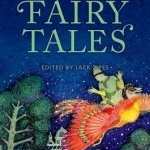
The Oxford Companion to Fairy Tales
Book
In over 1,000 entries, this acclaimed Companion covers all aspects of the Western fairy tale...

Snowdogs: Tails in Wales 2017
Games and Travel
App
A pack of much-loved, 1.5m tall fibreglass Snowdogs are taking over streets, iconic buildings and...
Simon Pegg recommended Annie Hall (1977) in Movies (curated)
Time and Place are Nonsense: The Films of Seijun Suzuki
Book
Japanese film director Seijun Suzuki began his career making increasingly outrageous B movies for...
Flyboy 2: The Greg Tate Reader
Book
Since launching his career at the Village Voice in the early 1980s Greg Tate has been one of the...
